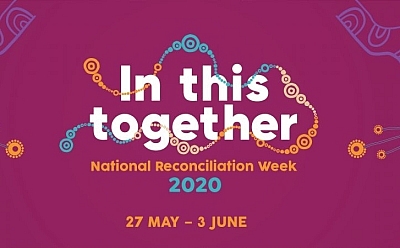Before 1967, Aboriginal and Torres Strait Islander peoples were not recognised as citizens in their own country. This meant, in most States, that they were unable to be the legal guardian of their own children, did not need to receive the same pay for work as non-Aboriginal people, and were restricted in relation to owning property.
More than 90 per cent of Australians voted “yes” in the 1967 Referendum to allow the Commonwealth Government to recognise Aboriginal people and for them to be counted in the census. At St Bart’s, we are looking at how we can better recognise Aboriginal people and improve our relationships with Aboriginal consumers and stakeholders.
The theme of reconciliation is at the very core of the St Bart’s Chaplaincy Service, in line with the following statement from the Chaplaincy Service’s Business Plan: “God has acted in the Jesus Christ event to break down barriers that separate, limit and constrain within the human relational circumstances at personal, inter-personal, social, and environmental engagements.” It goes on to state that the process is one of whole-making, which is not imposed but offered, in response to needs expressed through mutual relationships with dialogue and openness.
This focus on whole-making has led to a discussion on whether it is time to drop the traditional name “Chaplain” and replace it with “WellBeing.” As this captures the central concept of whole-making through the healing of the obstacles that restrict a person and organisations, as well as communities.
If this happens, what will change apart from yet another name change? The aim is a refocus and widening of the service to integrate the resource of WellBeing in each St Bart’s service area, for both staff and consumers.



